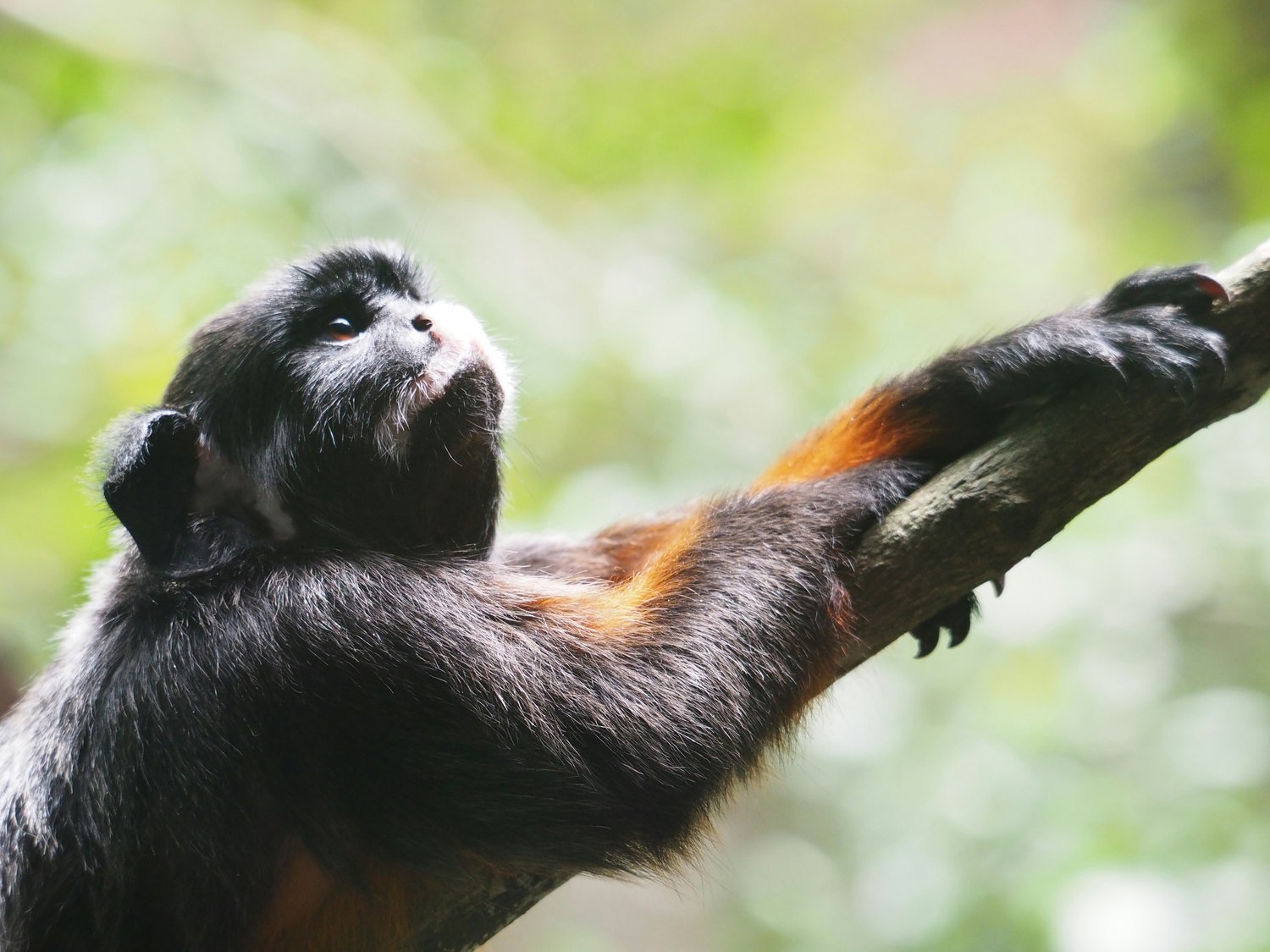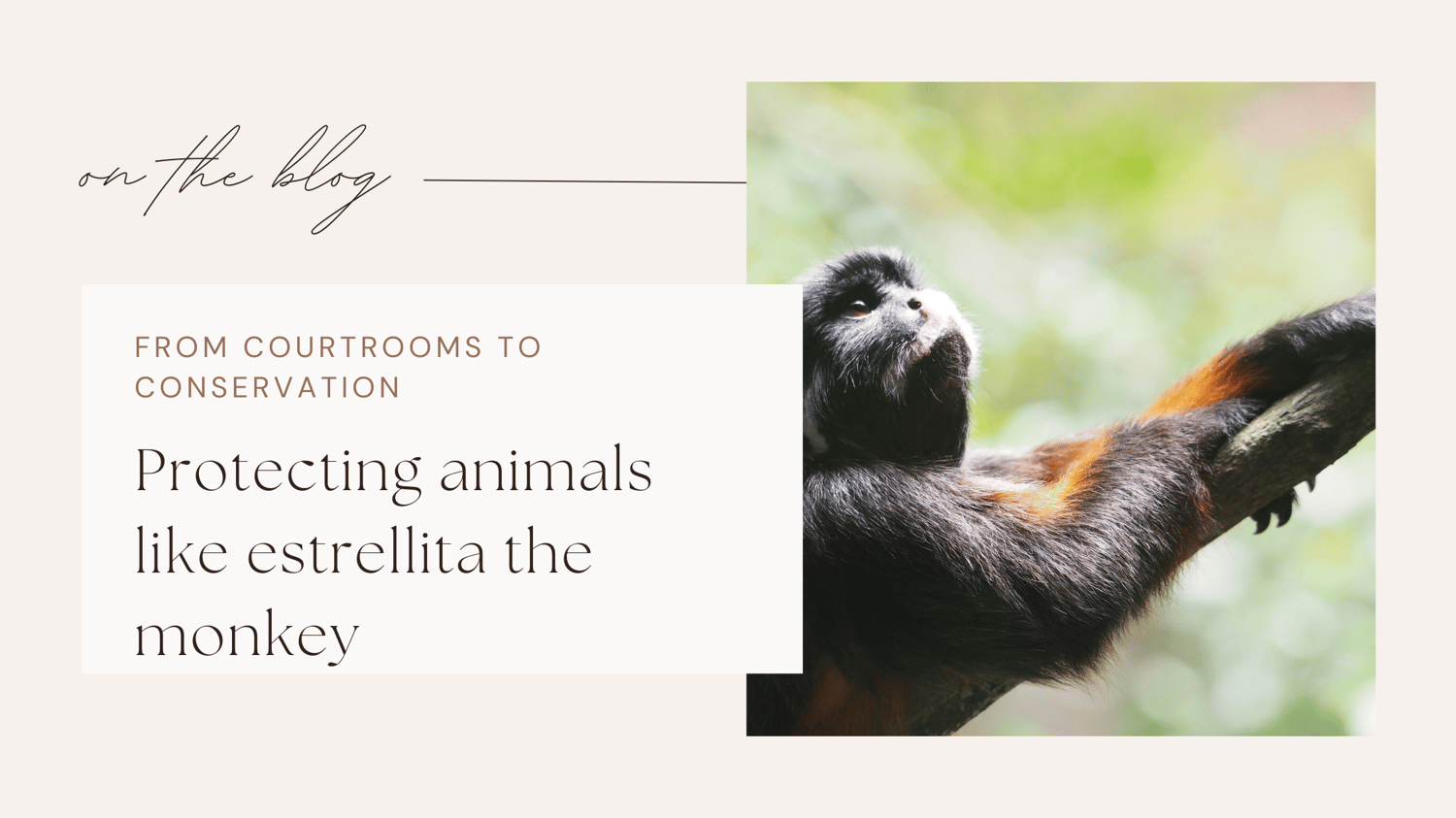Our last blog post - about having an impact for wild animals beyond 'traditional' wildlife career pathways - touched on wildlife law as a profession. As a perfect example, here's a unique story about how an 18 year old monkey named Estrellita changed Ecuador's legislation and set the precedent for wild animals' legal rights!

[Credit Jess Bailey. Image unrelated to article]
Estrellita, a wooly monkey living in Ecuador, was taken from the wild as a baby and (illegally) kept in someone's private home for 18 years. After reports of her whereabouts Estrellita was seized by authorities and placed in the care of a zoo where she sadly died when her heart stopped beating. Estrellita's previous captor asked the court to declare the monkey's rights had been violated when she was taken from her home.
The key detail - since 2008, the Ecuadorian Constitution has deemed nature as "a rights holder", meaning that anyone can request to protect the rights of nature (in indigenous language Quechua, this is known as Pachamama, or Mother Earth). In a groundbreaking decision, Ecuador’s Constitutional Court recognised Estrellita's legal rights under the country’s "rights of nature" framework. They ruled that wild animals have the right to exist, flourish, and develop innate behaviors free from cruelty and human exploitation.
Employers like the Animal Legal Defense Fund are the legal voice fighting for wild animals. Find them among 180 + more employers in our Wildlife Career Accelerator and Wildlife Work Directory.
It's important to note that Estrellita’s rights were first violated when she was removed from the wild to live in a human home - monkeys and other primates will never be suitable as pets under any circumstances.
Ecuador was the first country in the world to grant legal rights to nature, but this case marked the first time those rights extended to an individual wild animal. It emphasised that animals should not be viewed solely through an ecological or human-centered lens, but recognised as possessing intrinsic value independent of human needs.
Legal Rights for Wild Animals in Ecuador
The judges called on Ecuador’s Ministry of the Environment to develop stronger protections and clearer regulations to ensure that animals' legal rights are respected. Their legal structure now obligates the government to protect individual wild animals, signaling a profound shift in how wildlife is valued legally and ethically. This move sets Ecuador apart as a leader in and could influence other countries considering similar animal rights'.
Ecuador’s Constitutional Court has set a historic legal precedent by granting individual wild animals legal rights, emphasising the need to treat them as beings with intrinsic value. This bold move could inspire global change in the realm of animal and environmental law, encouraging other nations to rethink the legal status of wildlife.



